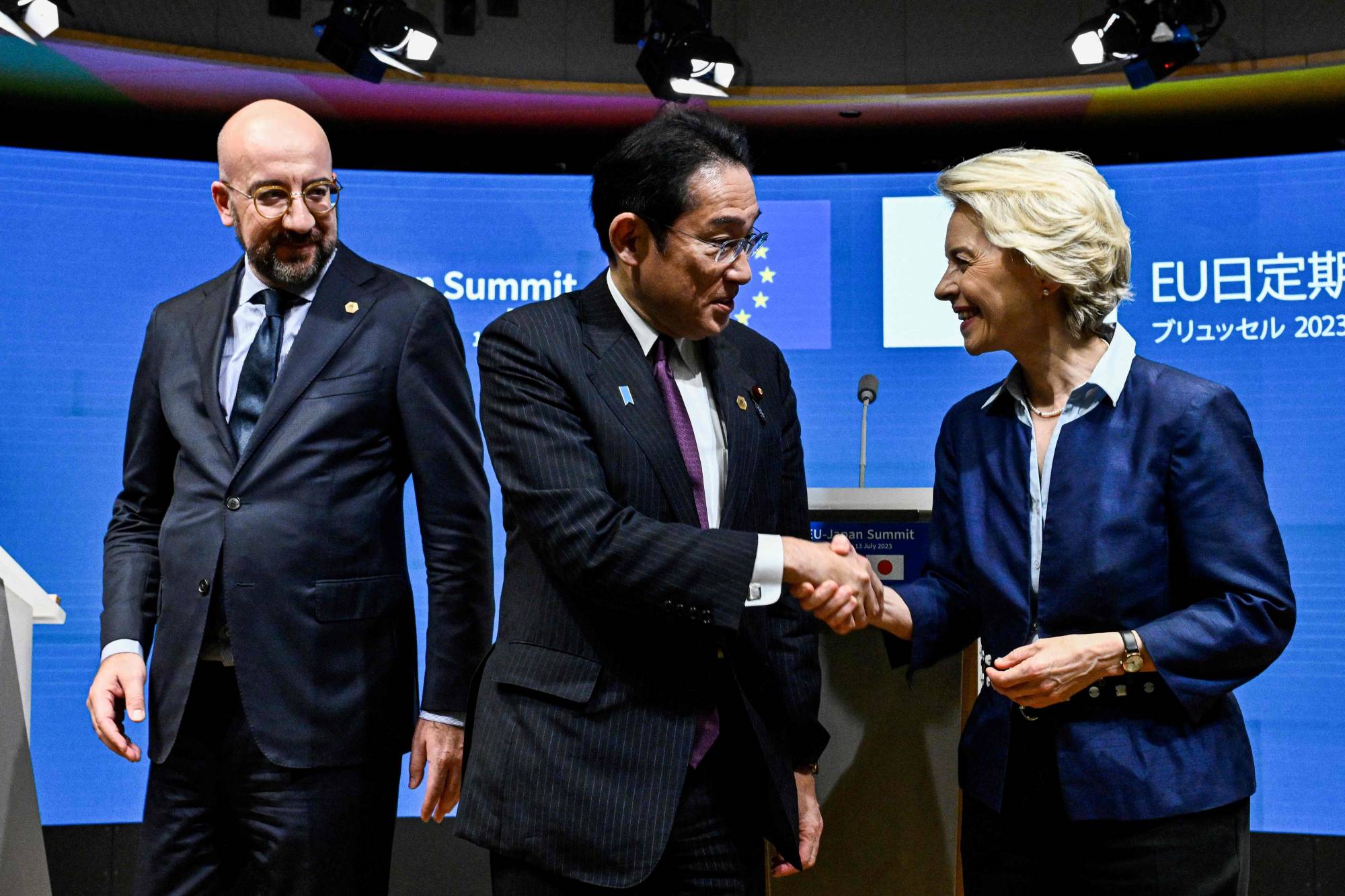Japan and the European Union have agreed to further deepen bilateral ties, launching a strategic dialogue on security issues and laying the ground for closer cooperation in areas such as emerging technologies, supply chain diversification, semiconductors and green energy, as their strategic interests increasingly converge.
The agreements, which also included the EU’s lifting of remaining import restrictions on Japanese food products linked to the 2011 Fukushima nuclear accident, were part of a joint statement issued by Prime Minister Fumio Kishida, European Council President Charles Michel and European Commission President Ursula von der Leyen following a summit Thursday in Brussels.
“We (Japan and the EU) need each other more than ever for our security and our economic resilience, and we are closer than ever,” Von der Leyen told joint news briefing, highlighting how the strategic partners are increasingly aligning their outlooks over areas of common concern, including Russia’s invasion of Ukraine and the rise of China, but also the need to uphold the global rules-based order and navigate the intensifying Sino-U.S. rivalry.


















With your current subscription plan you can comment on stories. However, before writing your first comment, please create a display name in the Profile section of your subscriber account page.